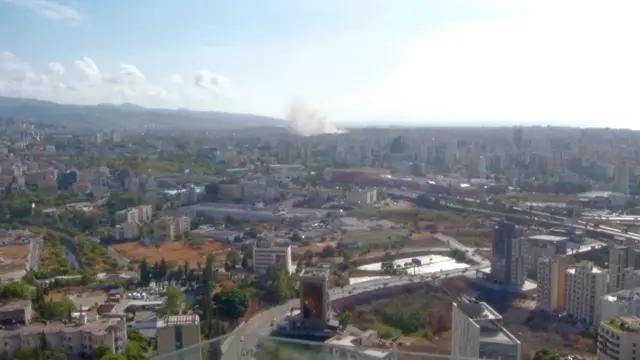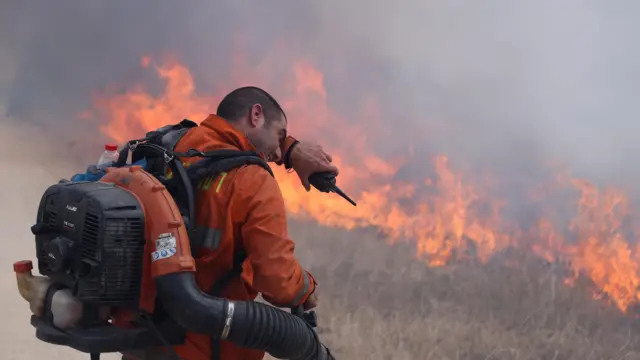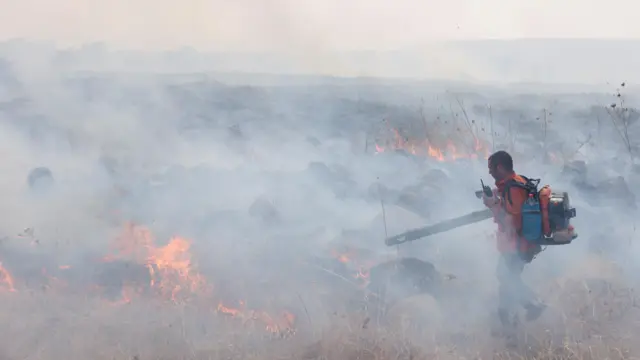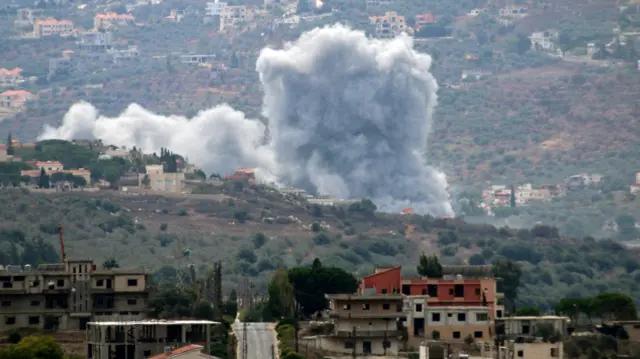No confirmation of what has been hit yetpublished at 14:15 BST 20 September 2024
We're seeing more images of smoke rising over southern Beirut after the Israeli air strike.
So far there has been no confirmation of exactly what was hit.
We'll update you with details as soon as we hear more.
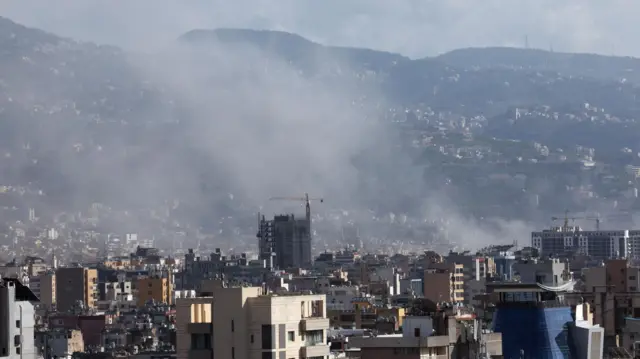 Image source, Reuters
Image source, Reuters
